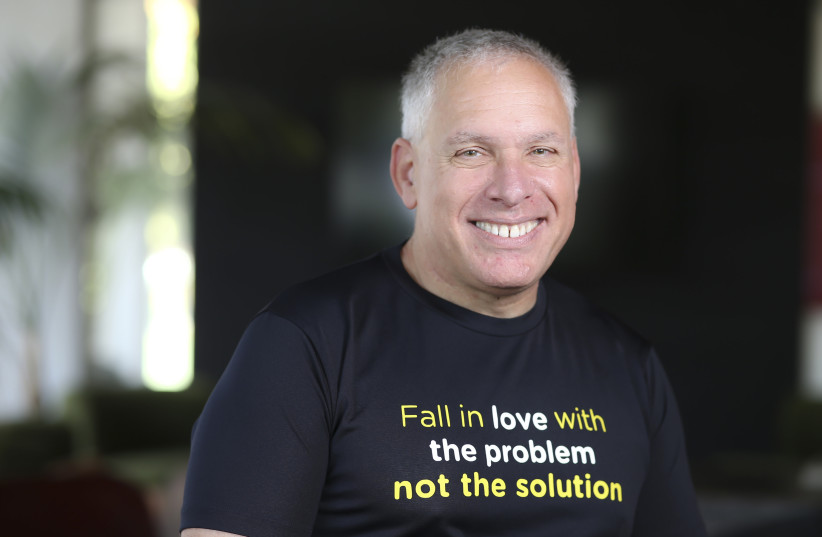Fall in love with the problem, not the solution. That’s the slogan that was plastered on Waze co-founder Uri Levine’s T-shirt as he participated in a Q&A panel at the annual Jerusalem Post Conference in New York.
Besides being the title of his upcoming book, that slogan is also what Levine considers fundamental to successful entrepreneurship. When asked if hatred of traffic was his core motivation for creating both Waze and public transit navigation app Moovit, Levine had two quick responses: “Short answer: I hate traffic. Long answer: I love traffic, because it’s a problem worth solving, and I feel that I can solve it.”
He further elaborated on the idea of falling in love with the problem, explaining that engaging with the problem can lead to more interest and more motivation to find a solution at all. “Assume I build a start-up and I say it’s using an AI machine learning algorithm to make a new navigational system — you say ‘who the hell cares?’,” said Levine. “But if I say I’m building a system to help you avoid traffic jams, then all of a sudden you get connected with the problem and it’s much easier to understand.”
“Engaging people with the problem rather than the solution makes life easier; and it remains as a beacon, a north star for where you’re going,” he said, noting that he sees Waze’s success in the 2010s as an enormous influence in the current wave of unicorns in Israel.

“I think Waze was a beacon in the hi-tech industry in Israel, and it demonstrated how to have a global impact [as a start-up],” he said. “Many entrepreneurs since then have looked at this beacon and said ‘I’d like to repeat that success, to create something that makes an impact, to build something bigger than Waze.’ In that sense, maybe I was the first significant unicorn marking the way for everyone else.”
Levine is currently involved with 12 start-ups, including a project addressing the issue of parking in Israel.